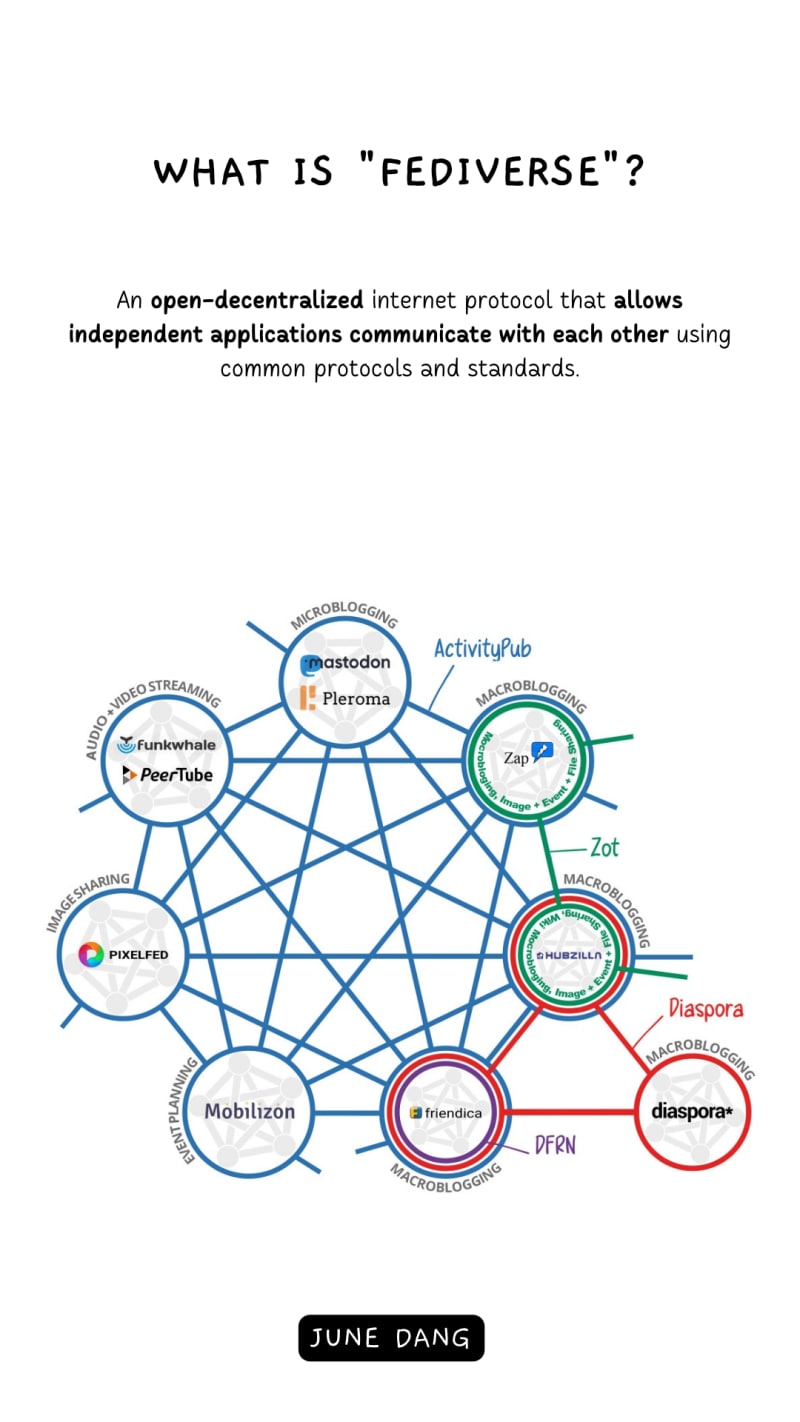Last week, Meta introduced Threads, a new social media platform that aims to compete with Twitter by leveraging Instagram’s account system. However, concerns have been raised, including by Elon Musk, regarding potential threats to freedom of speech due to centralized control of data under Mark Zuckerberg.
Many even think that Threads is just a clone of Twitter and even Elon threatens a lawsuit against Threads for violating Twitter’s “intellectual property rights”.
What is all this about?
Just like Twitter, Threads is a text-based content application with main features focused on posting short content, liking, and sharing it over the platform. In fact, Threads hits 30 million users within a day making it the fastest application to hit the first one million users.
But with features like Twitter, what secrets have made Threads become so popular? And does Threads a copycat of Twitter?
Threads visions
Our plan is to make Threads part of the fediverse, a social network of different servers operated by third parties that are connected and can communicate with each other. Each server on the fediverse operates on its own but can talk to other servers on the fediverse that run on the same protocol. We plan for Threads to use a protocol called ActivityPub to talk to other servers that support this protocol.
Said on the help center of Instagram Threads.
Clearly see that in the notice of Threads on Instagram’s help center, the application vision is to focus on making what is called “Fediverse”. This term seems strange at first and somehow sounds familiar to Metaverse – A somehow failed vision of Mark in the past due to overhyped.
What is “Fediverse”?
The Fediverse, short for “federated universe,” is a decentralized network and online communities where thousands of independent social media platform servers connect and talk with each other using common protocols and standards.
In the Fediverse environment, each server is an instance and in this instance, users can create identities that can then be used to communicate across the border of the instances that support the same communication protocol. The key important feature here is that “Fediverse” focus on the data you own whereas decentralization is a matter that your data will not be fully controlled by centralized organizations.
Just imagine Fediverse is like you transfer money to your friend, although different banks have their own business and technology behind them, the money transfer between them is the same because they are using the same transfer money protocol.
An arrival of Threads in the “Fediverse” world
At launch, it was, like Twitter before it, a walled garden; a Threads account only allows for posting and reading content on Threads. But, Meta promises, it won’t be that way forever. Threads customers will eventually be able to interact with other platforms in the so-called fediverse like Mastodon (an open-source Twitter replacement) and vice versa by planning to adapt ActivityPub – An open internet protocol that implements the idea of “Fediverse”.
So what is the meaning of all this?
Imagine one day Threads is shutting down and you are on the edge of losing all your followers and content you have spent years building on this platform. But with the help of the implemented ActivityPub protocols, you can just bring all your data and your followers to a different platform. Right now, two of the most popular platforms that support ActivityPub are Mastodon and WordPress. By having the support of ActivityPub protocol, users are more control over their data and free of speech ability which then can make the social network a more open place.
With the joining of the Fediverse, Meta aims to improve the inter-social network that allows them to connect to more users through different platforms which then breaks the border between independent applications. This would enable cross-platform communication and allow Threads users to connect with a broader network of users beyond just the Threads platform itself.
With every social network, data privacy is a crucial part of its users, and through Fediverse, users have more control over their data, what they want to share, and which people they want to connect. This reduces the dependence of users on centralized platforms that use users’ data for the wrong purpose. Furthermore, this opens the capability that users can create their personal servers to store and keep safe for their data.
Groups and communities take an important part in social media. And just like Fediverse, Threads could foster the development of niche communities by allowing users to create instances or communities with their own rules and moderation guidelines. This decentralized approach could encourage diverse communities to form, each with its own focus, interests, and user base.
What is the downside?
For now, all the feeling of using Threads to me is exactly like people said: “like a copy of Twitter”. And while the “decentralized” vision sounds fancy but while ActivityPub is an open networking protocol, Threads is still a platform owned and controlled by a centralized company and thus there is no guarantee your data will not be gathered by Meta every time you use Threads.
If you like the idea behind Threads and the vision of “Fediverse”, write the comments below if you like me to make a post about how ActivityPub works.





Top comments (2)
AFAICS so far, Threads is just a reskinned Instagram with a few minor tweaks (allowing posts without images being the obvious one). The fact that removing your Threads account will also remove your IG account kinda confirms this suspicion.
The Fediverse is not decentralized it's federated. Which means the member server/instance is responsible for maintaining it's contributions. If it was decentralized then every member of the federation would have to store it's data on a block chain or something.
It's like email. You can keep sending and receiving email from your custom domain until you delete the mail server or you sell the domain.